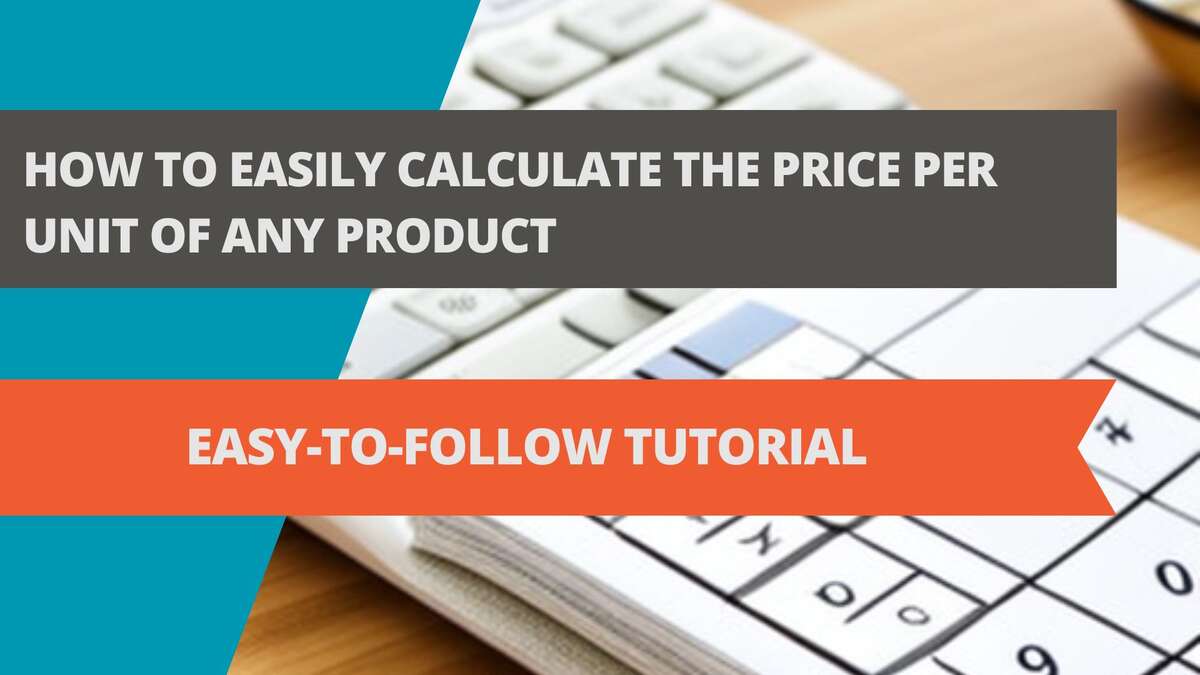Are you tired of trying to figure out how much a product costs per unit? Look no further! In this post, we will show you how to use a price per unit calculator to easily calculate the cost per unit of any product. Whether you are a consumer trying to save money on groceries or a business owner trying to price your products effectively, this tutorial is for you. Follow along with us to learn this valuable skill that can save you time and money!
The Importance of Calculating the Price per Unit
When you're shopping for groceries or other products, it can be difficult to determine which brand or package is the best value for your money. Manufacturers often use different units of measurement and package sizes, making it challenging to compare prices accurately. That's where calculating the price per unit comes in handy.
By calculating the price per unit, you can easily compare the cost of products and make an informed decision. For example, let's say you are at the grocery store trying to decide between two different brands of cereal. One box of cereal costs $4.50 and has 12 ounces, while the other box costs $5.00 and has 16 ounces. Without calculating the price per unit, it's difficult to determine which box is the better value.
However, by calculating the price per unit, you can easily compare the cost of the two boxes of cereal. The first box costs $0.38 per ounce, while the second box costs $0.31 per ounce. So, even though the second box of cereal is more expensive, it is actually the better value.
How to Use the Price per Unit Calculator
To use the calculator, you will need to know the total price and the total units of the product. Let's say you are comparing two brands of laundry detergent. One bottle of detergent costs $9.99 and has 50 ounces, while the other bottle costs $12.99 and has 75 ounces.
Enter the total price and total units of each product into the calculator, and click the "calculate" button. The calculator will then tell you the price per unit of each product. In this example, the price per unit of the first bottle of detergent is $0.20 per ounce, while the price per unit of the second bottle of detergent is $0.17 per ounce. So, even though the second bottle of detergent is more expensive, it is actually the better value.
Using the Price per Unit Calculator in Business
If you own a business, calculating the price per unit is essential to pricing your products effectively. Knowing the cost of each unit helps you determine the profit margin and set prices that are competitive and profitable. The price per unit calculator can also help you determine the break-even point for your products.
For example, let's say you run a small business that sells handmade candles. You know that each candle costs $3.00 to make, and you want to make a profit of $2.00 per candle. Using the price per unit calculator, you can determine the cost per unit and set the appropriate price for your candles.
If you sell your candles for $7.00 each, the price per unit is $4.00. Subtracting the cost per unit of $3.00, you have a profit of $1.00 per candle. This profit margin is too low, as you want to make a profit of $2.00 per candle. Therefore, you'll need to increase the price of your candles to $8.00 each. With a price per unit of $4.57, subtracting the cost per unit of $3.00, you now have a profit of $1.57 per candle, which meets your profit goals.
Calculating the price per unit can also help you adjust your pricing strategy based on changes in the cost of materials or production. By knowing the cost per unit, you can adjust the price of your products accordingly to maintain profitability.
Conclusion
Calculating the price per unit of any product is a valuable skill that can save you time and money when shopping for groceries or pricing your products in business. By using a price per unit calculator, you can easily compare the cost of products and make an informed decision.
Whether you're a consumer trying to save money or a business owner trying to maximize profits, understanding the cost per unit is essential to making informed decisions. So next time you're shopping, remember to use the price per unit calculator to get the best value for your money!
